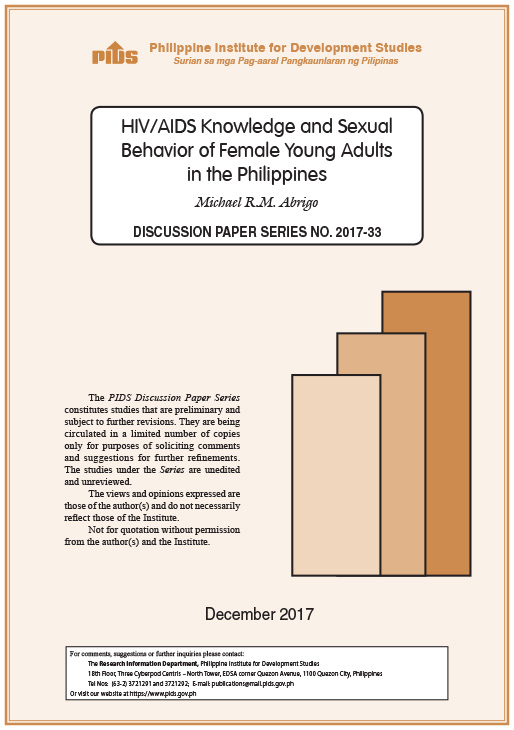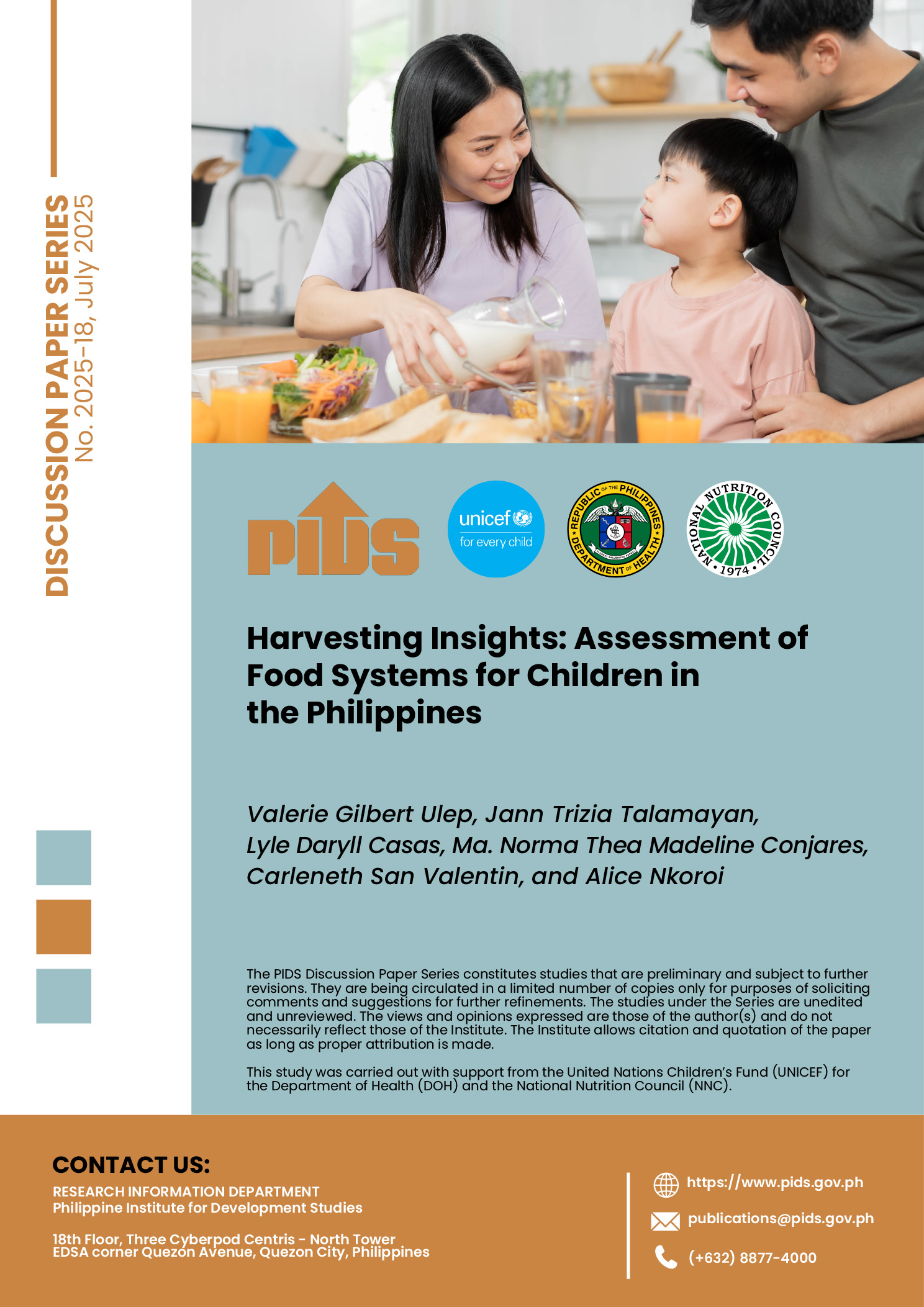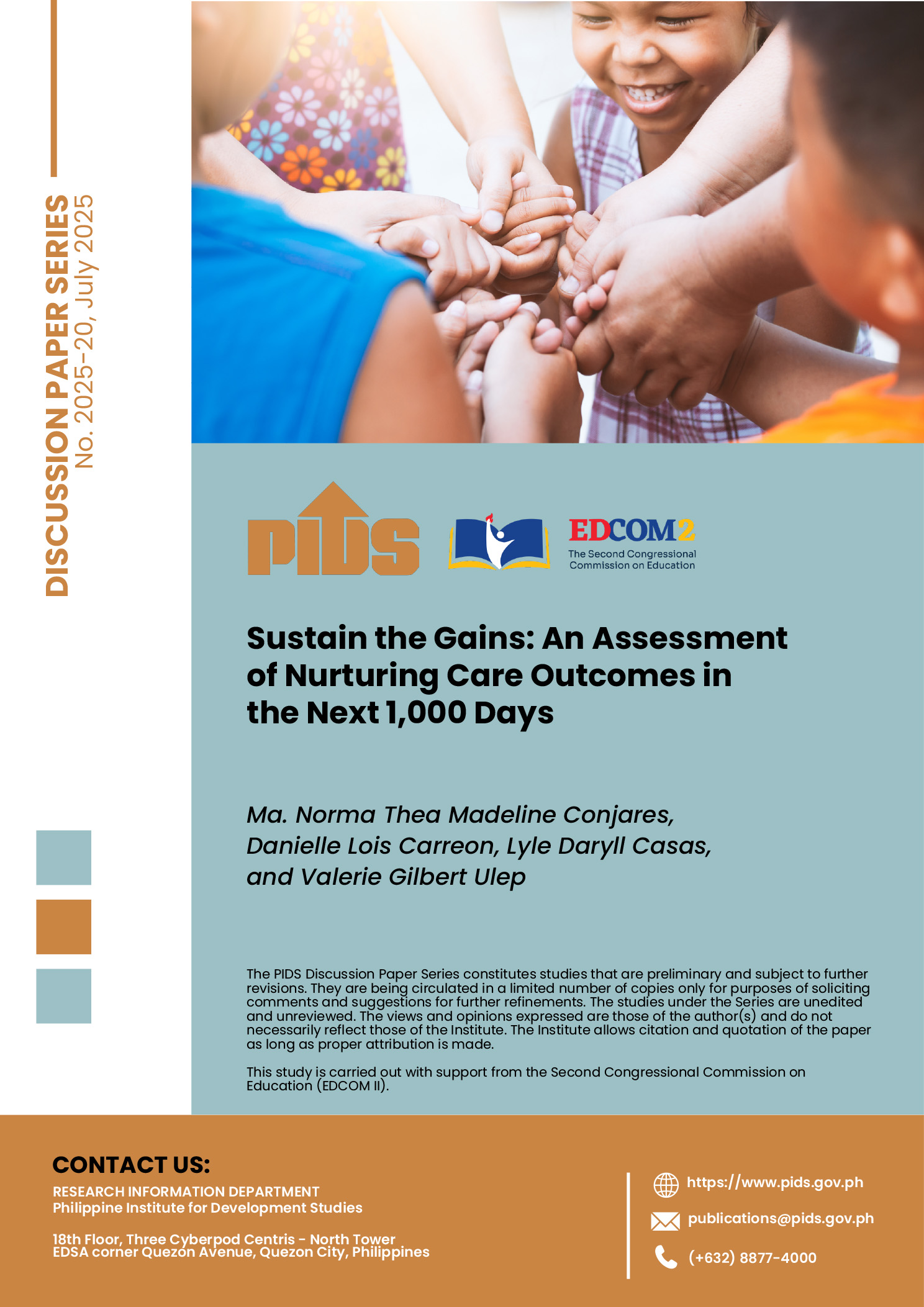The impact of sex education on various behavioral outcomes has been well studied in the literature. However, these studies fail to account for the simultaneity between knowledge demand and sexual behavior, leading to inconsistent effect estimates using simple comparison of means from randomized control interventions. A theoretical model of sexual behavior and sexually transmitted infection (STI) information demand is proposed to motivate the discussion. We show that the effect of STI knowledge on sexual behavior depends on how information affects the expected cost from sexual activity. We provide empirical evidence using Philippine data that increasing HIV/AIDS knowledge delays sexual initiation, limits sexual activity, and increases condom use among some subpopulation of female young adults.
Citations
This publication has been cited 3 times
- Chavez, Chito. 2018. Poor young females more vulnerable to STD than well-off counterparts – study. Manila Bulletin.
- Chavez, Chito. 2018. Poor women workers vulnerable to STDs — study. Tempo Online.
- Ordinario, Cai, and Marc Dela Paz. 2018. Neglected tropical diseases, HIV remain silent killers in PHL. BusinessMirror.













